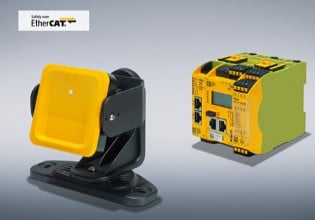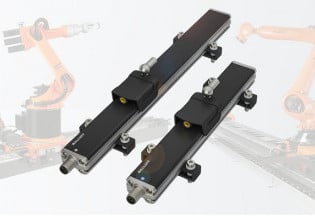A
We have an application using GE Fanuc VersaMax Ethernet CPU’s, and need to know if it is reliable enough or recommended to exchange interlocks between different controllers, via Ethernet. The Ethernet network is built with fiber optics and Cisco switches.
Any comments (Pros & Cons) will be greatly appreciated.
Regards,
Alvaro Rodriguez
Any comments (Pros & Cons) will be greatly appreciated.
Regards,
Alvaro Rodriguez






